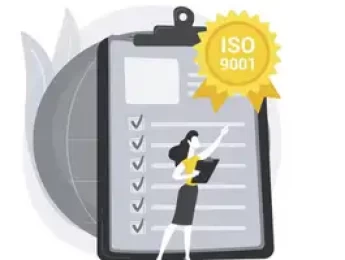The best quality management strategies encompass a multifaceted approach aimed at consistently delivering superior products or services that meet or exceed customer expectations. At its core, these strategies emphasise a commitment to continuous improvement, fostering a culture of quality throughout the organisation. Adopting international standards such as ISO 9001 provides a structured framework for quality management, enabling organisations to establish robust processes, set clear quality objectives, and monitor performance effectively.
Embracing a customer-centric philosophy ensures that quality efforts are aligned with customer needs and preferences, driving satisfaction and loyalty. Implementing quality tools and techniques such as Six Sigma, Lean Management, and Total Quality Management facilitates systematic problem-solving, waste reduction, and process optimization. Furthermore, empowering employees through training, engagement, and recognition fosters ownership and accountability for quality outcomes at all levels.
Ultimately, the best quality management strategies are adaptive, data-driven, and focused on achieving excellence in every aspect of operations, resulting in sustained success and competitive advantage.
Upon completion of this course, participants will be able to:
- Understand the principles of quality management techniques.
- Clarify quality and strategy terminology, emphasising key elements of strategic quality planning.
- Evaluate the existing circumstances to pinpoint potential areas for developing a strategic quality blueprint.
- Formulate strategic objectives tailored to their quality division.
- Transform strategic objectives into an actionable operational blueprint.
- Review elements integral to strategic quality governance.
- Understand the process of strategic deliberation.
- Evaluate the benefits associated with strategic quality oversight.
This course is designed for anyone responsible for quality management within the organisation. It would be most beneficial for:
- Quality Managers
- Project Managers
- Department Managers
- Operations Managers
- Process Managers
- Risk Management Professionals
This course uses a variety of adult learning styles to aid full understanding and comprehension. Participants will watch videos to understand the importance of quality management systems for businesses. They will review LEAN methodology and Six Sigma processing in order to make their departments run more smoothly by removing waste from procedures.
They will also be presented with real-world case studies addressing the challenges of quality management in achieving company goals and discuss mitigation techniques and changes to aim for continuous quality improvement.
Day 5 of each course is reserved for a Q&A session, which may occur off-site. For 10-day courses, this also applies to day 10
Section 1: Strategic Quality Management
- Understanding strategic quality management principles.
- Defining quality and strategy concepts in strategic planning.
- Analysing the current situation for strategic quality planning.
- Generating strategic goals for quality departments.
- Converting strategic plans into operational plans.
- Components of strategic quality management.
- The process of strategic thinking.
- Advantages of strategic quality management.
Section 2: Data Analysis to Assess the Quality Environment
- Understanding the quality environment and its data requirements.
- Methods and tools for collecting quality-related data.
- Analysing data to evaluate the quality environment.
- Interpreting findings to assess quality performance.
- Identifying trends and patterns in quality data.
- Using data to drive quality improvement initiatives.
- Case studies illustrating data analysis in quality assessment.
Section 3: Six Sigma & Lean Management
- Introduction to Six Sigma and Lean Management methodologies.
- Understanding the principles and objectives of Six Sigma and Lean Management.
- Tools and techniques used in Six Sigma and Lean Management.
- Application of Six Sigma and Lean Management in different industries.
- Integration of Six Sigma and Lean Management approaches.
- Process improvement strategies using Six Sigma and Lean Management.
- Measuring performance and success in Six Sigma and Lean Management initiatives.
Section 4: Quality Management IT Systems
- Selection criteria for quality management IT systems.
- Implementing and integrating quality management IT systems.
- Training and user adoption strategies for quality management IT systems.
- Data security and compliance considerations.
- Monitoring and evaluating the effectiveness of quality management IT systems.
- Troubleshooting and support for quality management IT systems.
- Continuous improvement and updates in quality management IT systems.
Section 5: Quality Targets & Challenges
- Strategies for overcoming quality management challenges.
- Aligning quality targets with organisational goals.
- Monitoring progress towards quality targets.
- Adapting to changing quality requirements and challenges.
- Continuous improvement initiatives to address quality challenges.
Section 6: Your Quality Vision into Reality
- Aligning the quality vision with organisational objectives.
- Engaging stakeholders in the quality vision.
- Translating the quality vision into actionable goals.
- Developing plans to implement the quality vision.
- Monitoring progress towards achieving the quality vision.
- Overcoming obstacles in realising the quality vision.
- Celebrating successes and reinforcing the quality vision.
Upon successful completion of this training course, delegates will be awarded a Holistique Training Certificate of Completion. For those who attend and complete the online training course, a Holistique Training e-Certificate will be provided.
Holistique Training Certificates are accredited by the British Assessment Council (BAC) and The CPD Certification Service (CPD), and are certified under ISO 9001, ISO 21001, and ISO 29993 standards.
CPD credits for this course are granted by our Certificates and will be reflected on the Holistique Training Certificate of Completion. In accordance with the standards of The CPD Certification Service, one CPD credit is awarded per hour of course attendance. A maximum of 50 CPD credits can be claimed for any single course we currently offer.
- Course Code PO3-110
- Course Format Classroom, Online,
- Duration 5 days














